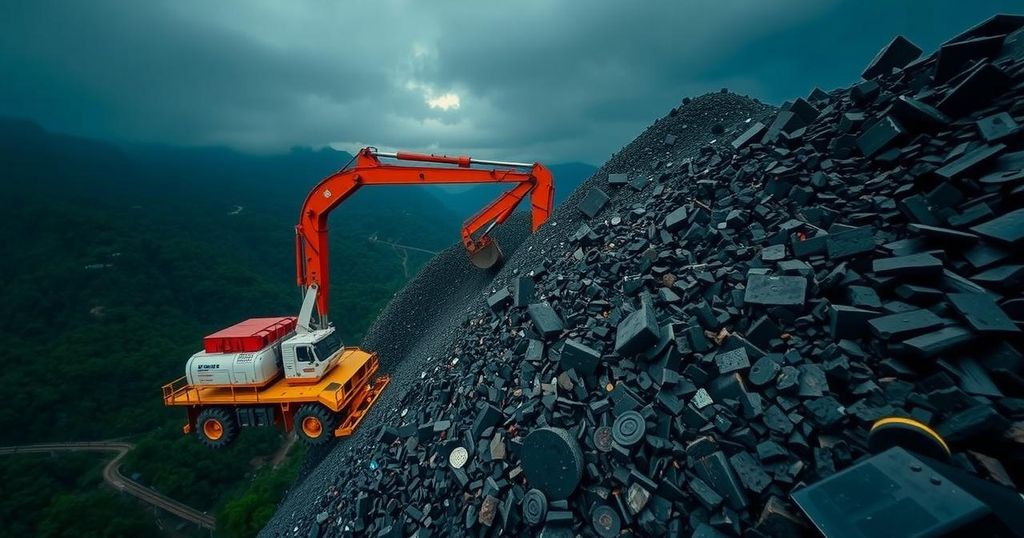Illegal Mining Crisis Threatens Ghana’s Economy Ahead of Presidential Election

Illegal mining, particularly ‘galamsey,’ is threatening Ghana’s economy by harming cocoa production and contaminating water sources as the presidential election approaches. Candidates have proposed various measures to combat galamsey, yet the practice remains financially beneficial for many involved. The upcoming administration faces substantial challenges in addressing these issues while fostering economic recovery.
Ghana is facing a significant challenge with the increase of illegal mining, known locally as “galamsey,” which is severely impacting the country’s economy ahead of the upcoming presidential election. The rise in illegal gold mining has corresponded with soaring global gold prices, and while Ghana is Africa’s leading gold exporter, much of the extracted gold is smuggled, depriving the nation of potential revenue.
Typically, illegal miners operate in makeshift pits, using hazardous chemicals like mercury and nitric acid to extract gold. This practice not only endangers water supplies but also compromises agricultural land, severely affecting cocoa production. Ghana’s water supply has been contaminated, prompting protests aimed at making illegal mining a focal issue in the electoral campaign.
Both primary presidential candidates, Mahamudu Bawumia of the New Patriotic Party and John Dramani Mahama of the National Democratic Congress, have pledged to address illegal mining. Bawumia has proposed a minerals development bank to assist local mining enterprises and simplify licensing for small-scale mining. Mahama has outlined intentions to improve regulatory oversight through the establishment of a gold board.
With illegal mining continuing as a lucrative venture for many, including political contributors, the next government faces the difficult task of balancing economic revival with the pressures to maintain political financing. Although some industry executives downplay its immediate impact, the long-term risks of continued illegal mining on agriculture and food security are pronounced.
The new administration, which will take office following the December election, must devise strategies to formally recognize and regulate these unlicensed activities, thereby enhancing revenue collection and improving safety standards. The widespread prevalence of illegal mining places further strain on Ghana’s economy, complicating efforts to recover from a significant economic downturn experienced in recent years.
The illegal mining crisis in Ghana has escalated due to a combination of rising global gold prices and local economic pressures, creating a volatile situation that tests the incoming government’s resolve. Cocoa, a primary export for Ghana, is increasingly at risk as illegal mining operations encroach on farmland, leading to production declines. Authorities have issued warnings over contaminated water supplies, presenting a dire situation that may influence electoral outcomes. The dependency on galamsey for local economic stability alters the political landscape, making it challenging for the government to address illegal mining effectively.
In summary, illegal mining in Ghana poses profound threats to the nation’s economy, particularly regarding its impact on cocoa production, water supply, and overall food security. The interplay of local politics and the lucrative nature of galamsey complicates the prospects for regulation, as the incoming government will need to balance economic recovery with the significant challenges posed by illegal mining activities. Long-term solutions that involve formalizing these operations could provide a pathway toward greater sustainability and economic benefit for the country.
Original Source: www.semafor.com







